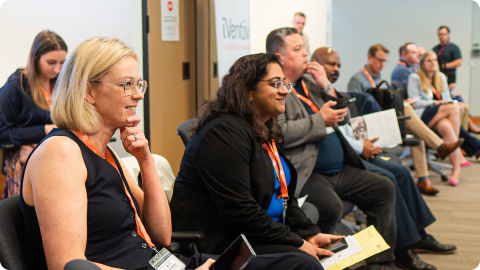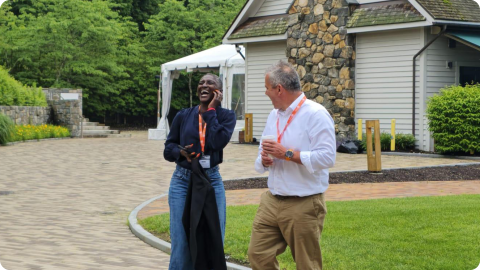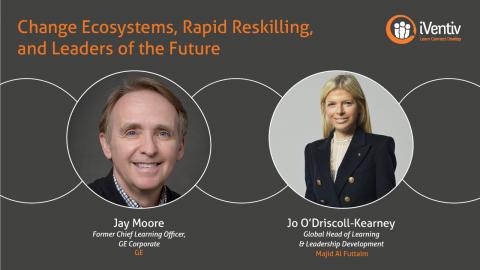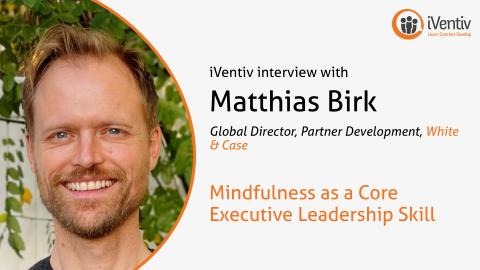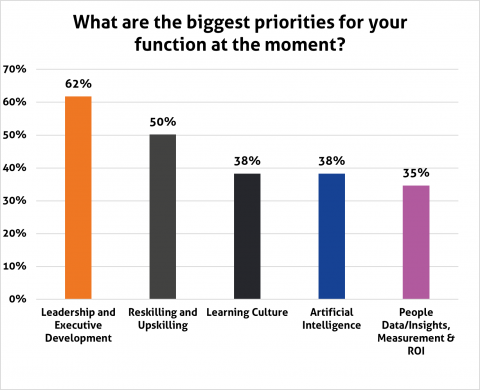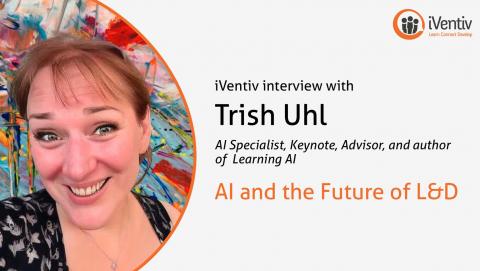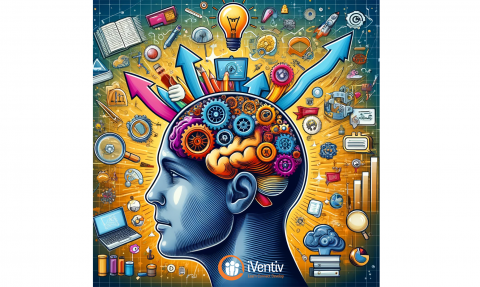Submitted by Kerry Summers on
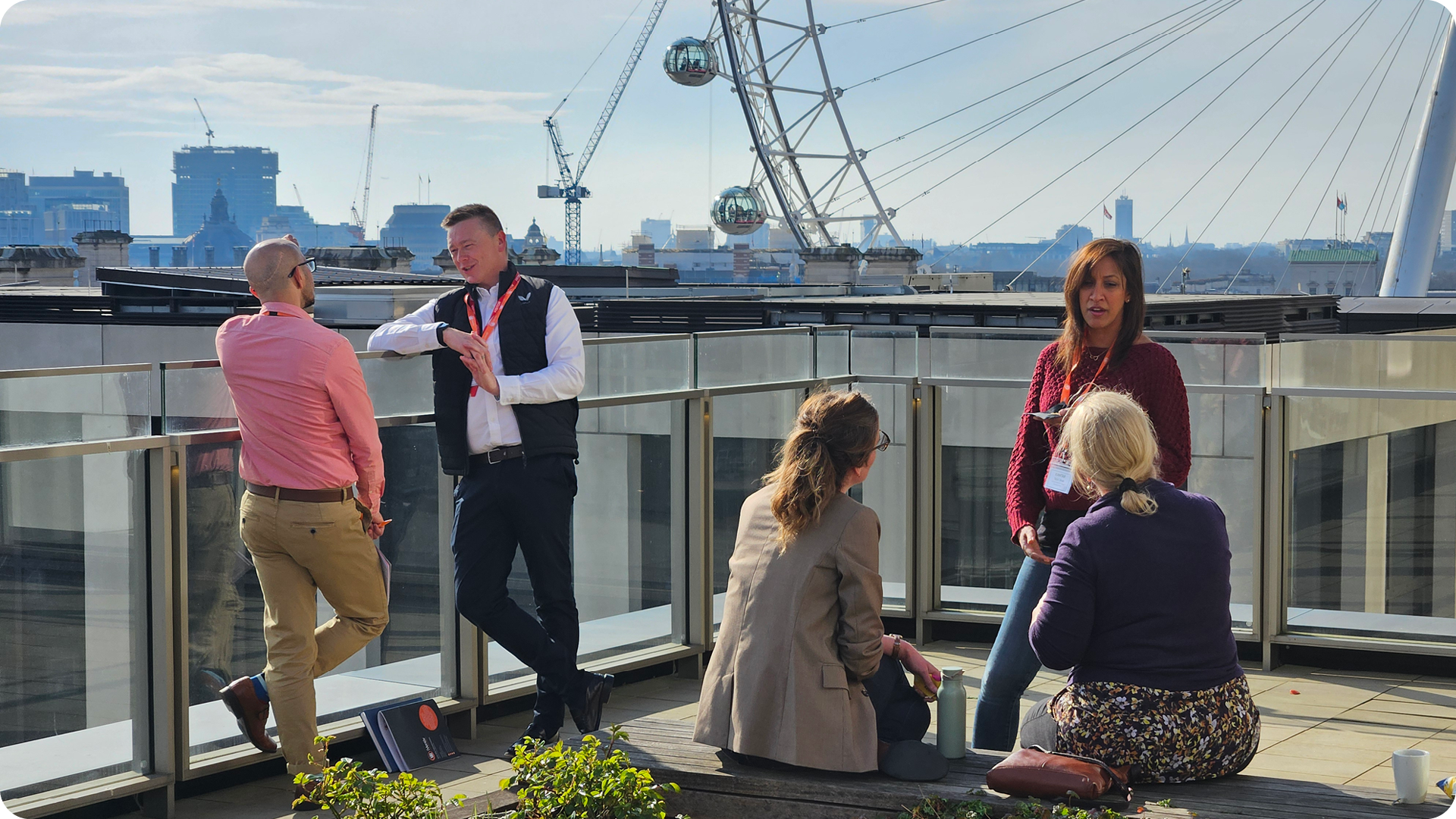
Organising internal events for Learning & Development teams can be a powerful tool to foster connection, drive alignment and support growth – but only when done well. For L&D teams spread across multiple regions, business units and time zones, planning a meaningful and engaging event can often present real challenges.
While global organisations bring a wealth of diversity and insight, they also introduce barriers, siloed communication and a lack of shared experiences. Events can quickly feel generic, repetitive, or disconnected from the day-to-day realities of participants, leaving people feeling disengaged.
To truly make an impact, you need more than another PowerPoint heavy webinar. You need experiences that are interactive, personalised and foster real collaboration and conversation.
So how do you design an L&D event that your team doesn’t just attend, but genuinely looks forward to?
Start with the why – build excitement to drive sign-ups
Engagement doesn’t begin when the event starts, it begins the moment you announce it. To generate enthusiasm and commitment, you need to focus on making the ‘why’ of the event clear and compelling. Ask yourself, what would make someone want to prioritise this event over anything else in their calendar?
Clearly communicate the value
What is it that makes this event unique? Whether it’s a completely new format, a topic that’s highly relevant to the participants, or participation from senior leaders, make sure attendees know how this event is different, and why it matters.
Create a compelling agenda
Make sure participants know what it is they can expect. Focus on practical takeaways, engaging speakers and formats that prioritise interaction rather than presentations. Highlight real-world challenges with solutions that attendees can bring back to their roles.
Collaborate on content
Invite input from participants ahead of time. Use pre-event questionnaires and calls to involve them in shaping the agenda. When people feel ownership over the content, they’re more likely to attend and participate and find topics relevant for them.
Leverage internal communication
Partner with your internal marketing and communications teams to build momentum and drive awareness. Consider involving managers and colleagues with a lot of influence who can advocate for the event and bring their teams along with them.
Design for participation – from passive listeners to active contributors
Getting people to register is just the beginning. The real success of your event lies in how engaged they are once they show up. So how can you turn attendees into active participants?
Make it conversational
People are more likely to engage when they feel seen or heard. Design sessions that encourage back and forth conversations and avoid one-way presentations where possible.
Listen, don’t just talk
Use facilitation techniques that invites contribution. Encourage reflection, make time for feedback sessions and involve participants in shaping the flow of the event. Open the floor for open discussion.
Keep the groups small
Big events often stifle authentic conversation. If you structure your event into smaller breakout groups, the intimate setting fosters trust, psychological safety and richer dialogue. Consider including peer-led groups too.
Design for action
Ensure sessions lead to tangible next steps. Participation increases when attendees see a clear link between the event and their work and have things they can take back to their teams.
Choose the right format – In person, Virtual, or Hybrid
The format of your event will directly shape its experience and effectiveness. Whether you decide to choose In-Person, Virtual, or Hybrid, each format offers strengths and challenges.
In-Person Events
- Pros: Rich, face to face connection and conversation, resulting in better focus and energy, fewer digital distractions, more spontaneity and collaboration.
- Cons: Logistical issues, higher costs and limited reach due to travel constraints
- Tip: If budget allows, consider offering accommodation or travel reimbursement for team members who need to travel. This makes in-person participation more inclusive.
Virtual Events
- Pros: More accessible to global teams, lower costs, easier to scale
- Cons: Risk of disengagement and distraction, screen fatigue, harder to build rapport
- Tip: Keep sessions short and highly interactive. Use breakout rooms, feedback sessions and live chats to maintain energy.
Hybrid Events
- Pros: Flexibility for attendees, resulting in wider participation
- Cons: Risk of unequal experience if not carefully planned. It can be harder to facilitate interaction between in-person and remote attendees.
- Tip: Make sure you design the event as hybrid from the beginning. Be sure to bridge the two audiences and allow remote attendees access to all content and conversation.
How does iVentiv create high-impact events for L&D teams?
At iVentiv, we have created bespoke L&D events that go beyond the traditional. Having worked with global companies like Microsoft and AstraZeneca, we have designed experiences tailored to learning professions, from emerging talent all the way to senior leaders.
But what makes our approach different?
Small group learning
We keep the participant list tight to prioritise depth, quality of conversation, and meaningful collaboration and conversation
Co-created content
Our agendas are shaped by the participants, making each event deeply relevant to everyone attending
L&D community
We don’t just run events, we build communities of Learning professionals who continue to collaborate long after the event ends.
Our events consistently receive glowing feedback for their intimacy, energy and impact – because they’re designed with people at the centre. Here is what previous attendees have said:
Genuinely, this has been the best thing I’ve attended for years. I’ve written down pages and pages.
- Capability & Skills Partner, AstraZenecaAn incredibly valuable event which opened up a world of knowledge exchange with peers that I would never of thought was possible. I made connections that was last for a long time. I now do not feel alone.
- Global Leadership Development Director, American ExpressAs we’ve been building the culture of lifelong learning across AZ, one of the things that has been foundational is ensuring that we invest in developing a learning community.
- VP, Head of Global Talent & OD, AstraZeneca
The most effective L&D events don’t just inform, they connect, inspire and drive results. Whether you’re gathering ten people or 100, virtual or in-person, the principles remain the same – listen, collaborate and create space for real engagement and conversation.
To enquire about iVentiv bespoke events, visit our enquiry page now.
iVentiv and Microsoft - A Bespoke Event Experience



